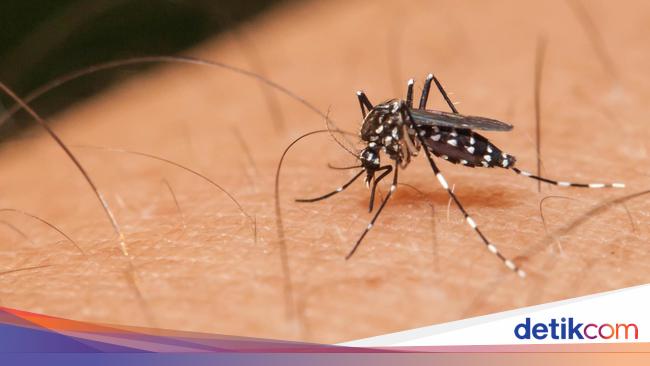Jakarta –
Cases of dengue hemorrhagic fever (DHF) at the beginning of this year showed an increase in numbers and deaths. The public is advised to be more alert regarding the transmission of diseases transmitted by the Aedes Aegypti mosquito.
According to data from the Ministry of Health, cases of dengue hemorrhagic fever or DHF until the end of February were reported to be higher than the previous year. In the 8th week or end of February 2024 there were at least 15,977 cases of dengue fever reported with 124 deaths throughout Indonesia. Meanwhile, in January 2023, 12,502 cases of dengue fever were reported with 101 deaths.
Director of Prevention and Control of Infectious Diseases at the Ministry of Health, Dr. Imran Pambudi, said that the occurrence of El Nino, which has hot and dry temperatures, followed by La Nina, which is accompanied by rain, will have an impact on the development of mosquito breeding sites and egg hatching. This is what causes the risk of dengue transmission to be high.
“The dengue fever cycle is indeed December, January, February. It is indeed high. Every year is like that, if we compare it with 2022, it is the highest, cases in 2024 this February are lower compared to 2022,” he said at a press conference. at the Indonesian Ministry of Health office, Tuesday (5/3/2024).
“But if we compare to 2023, the cases are indeed higher this year. The high number of dengue fever cases is also related to rainfall. Last year it was a dry El Nino. This year it is La Nina, there is more rain,” he added. .
Imran reported that the case fatality rate due to dengue fever was highest in the Central Java region, namely Salahtiga and Kendal.
Therefore, he encouraged every district throughout Indonesia to be ready to face dengue hemorrhagic fever. The preparations made include reminding the public to eradicate mosquito nests (PSN) and preparing health service facilities including medicines.
“It’s just that the rain right now isn’t polite, it rains for a day, then it’s hot, then it rains again for 4 days. It’s actually rain like this that’s dangerous. Because the water reservoir is irreplaceable, so there are mosquitoes that lay their eggs there so they can still hatch. It’s better “it rains heavily, or it rains every day so this keeps getting replaced,” he continued.
Watch the video “Former Minister of Health Siti Fadilah Questions the DHF Control Program with Wolbachia”
(suc/naf)
2024-03-05 10:42:19
#DHF #Cases #Indonesia #Thousand #Early #Ministry #Health #Reveals #Triggers


